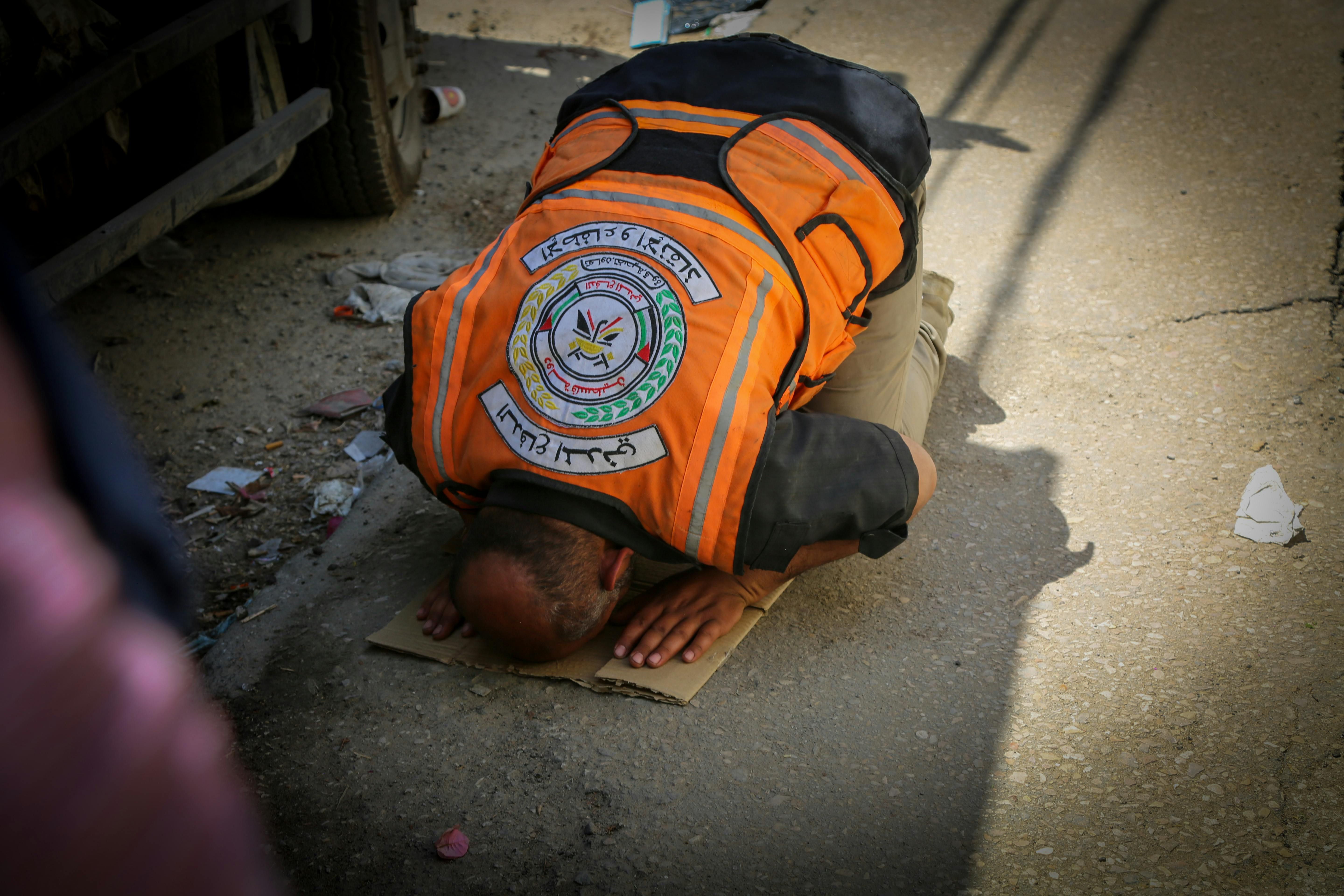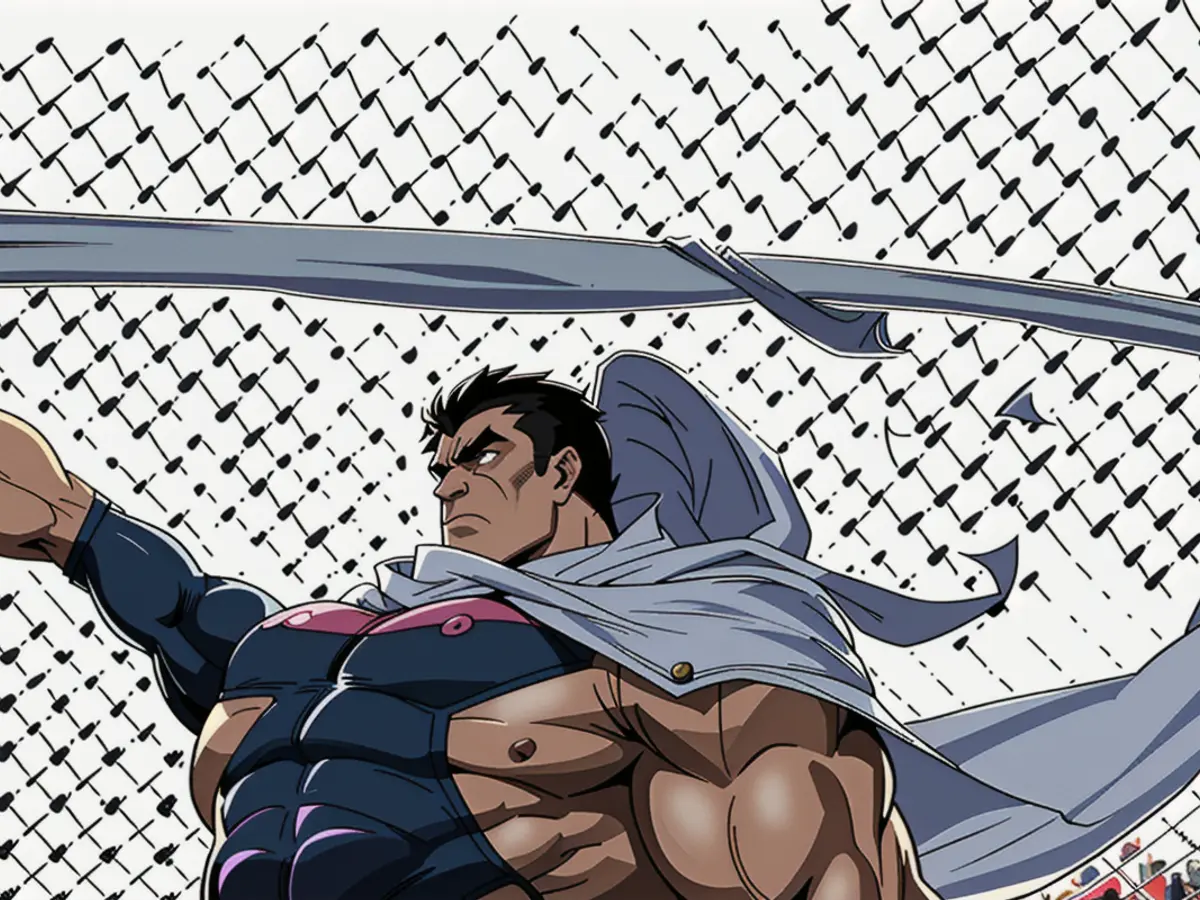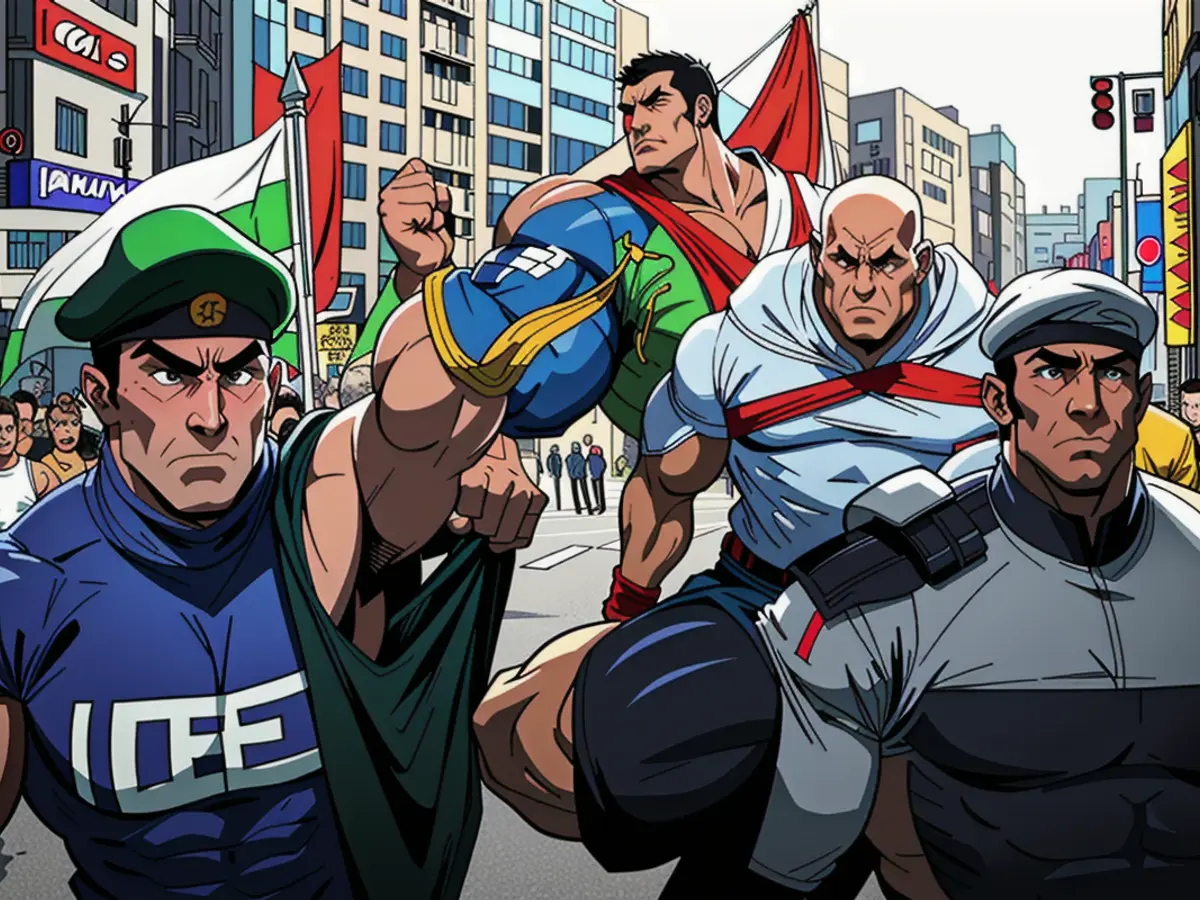Assaults on Journalists: "Press Safety Undervalued"
- By Avery Green
- 7 Min
Reporters Face Isolation Amid escalating threats and dangers. - Reporters Face Undeterred Peril in Solitude
Throughout recent years, the organization "Reporters Without Borders" has reported a significant escalation in hostile acts against media professionals globally. The increase is primarily linked to rallies, particularly those focusing on the Israel-Palestine conflict. Consequently, this article reposts an interview with expert Pia Lamberty, who offers insights into this concerning trend.
Dr. Lamberty, journalist Nicholas Potter claims a "blacklist" circulating within left-wing Berlin circles containing names and addresses of unwanted journalists, with Potter himself being a target of a sticker defamation campaign. Is this a new facet of press intolerance?
We have witnessed an escalation of press intolerance, online harassment, and even physical violence against journalists, primarily among QAnon and right-wing extremists. However, since the Hamas massacres in Israel in late 2023 and the continued violence in Gaza, another press-hostile milieu has arisen. Nicholas Potter is one of the journalists targeted by this group due to his research on left-wing anti-Semitism.
Potter cautions of an "Intifada against the press," naming a self-proclaimed pro-Palestinian left as the culprits. Is this a unique issue in Berlin?
Indeed, similar sentiments can be found in other cities as well. For instance, in Mainz, a speaker at a pro-Palestine organization insulted journalists as "far-right scum" in May 2024.
About the Interviewee
Pia Lamberty, age 41, is a German social psychologist. She co-founded the Berlin Center for Monitoring, Analysis, and Strategy (CeMAS), a non-profit organization established in 2021. Its experts focus on observing the latest developments relating to conspiracy ideologies, anti-Semitism, and right-wing extremism. Lamberty has herself faced threats due to her work.
What fuels the press-hostile environment within pro-Palestinian circles?
It is crucial to distinguish between individuals supporting the people of Gaza and a radicalized group driven by an anti-Semitic worldview, deeming press intolerance as part of their ideology. Evidence of this includes the repeated denial of press access during occupations or protests. However, propagandistic media, such as the English-language digital portal "Red," which has connections to Russia, are typically granted access.
Potter addressed "Red" in October, mentioning it as "allegedly funded by Russia" and providing a platform for "Islamist terrorist organizations." The Instagram accounts were suspended last year. How influential is it today?
Since the Instagram accounts were shut down, "Red" has minimal reach on that platform but remains active on Telegram, with 21,000 followers, and boasts 120,000 followers on X. On Telegram, Potter's picture appeared on December 17 along with insults and accusations that he's an Israeli-hired propaganda journalist. The stickers defaming Potter on street furniture refer directly to this post.
Did the protests against Israeli military action become co-opted, for instance, by platforms like Red?
The Middle East conflict has long served as a platform for manipulation and propagation. The Kremlin historically has used anti-Semitism as a propaganda tool, and many nations have exploited the conflict between Israel and Palestine to divert attention from internal political issues. Since the shift in geopolitical power dynamics, the conflict is being exploited by actors like Russia and Iran to stoke anti-Semitic sentiments. The dichotomy between "good" and "evil" is particularly suitable for such purposes. The focus tends to be on projecting negative images rather than addressing the actual situation on the ground or finding solutions to the conflict.
Lamberty routinely monitors the messaging app Telegram. Where else have press hostilities been observed?
While protests led by conspiracy theorists have largely subsided, along with decreases in violence and threats towards journalists from this cohort, incidents continue to occur. For instance, during the farmers' protests last year, media personnel became targets. Currently, neo-Nazi demonstrations are on the rise once more, and press hostility is also a component of this resurgence.
In November, the research network Correctiv's website was inaccessible thanks to hackers for several days. Correctiv stated at the time, "The evidence points to Russia." What purpose does this potentially serve?
Flooding fact-checkers like Correctiv with false reports is also a method used by Russia to disrupt their work. However, attributing such activities directly to the Russian government can be challenging, as there are often campaigns not directly controlled by the Kremlin but working in its interest.
Traditional media influence has waned - why is the press still a target?
Journalists will always be perceived as an enemy by anti-democratic movements because they embody the exact opposite of what enemies of democracy seek. Truth-seekers and enlighteners do not fit within their narratives. Consequently, negative images are cultivated. By creating a dichotomy of "us against them," it is possible not only to defame the opposing side but also to strengthen one's own group. As a result, negative images are psychologically significant in the formation of extreme groups.
Why do they target individual journalists rather than the press as a whole?
Individual journalists may be attacked in the hope that they will eventually succumb and cease reporting. However, there are also attacks on media outlets that have been labeled as "Zionist lying press" by this group, as Potter reports. Many journalists have stopped covering these protests due to the increased risk they pose. This pattern has been observed following the Querdenker protests, where journalists expressed that the danger had become so significant that they no longer felt comfortable reporting openly and honestly.
Is there any value in reporting on protests where one cannot speak to anyone?

It's crucial for journalists to be present during the events and gather information about what's happening, who the key actors are, and their roles. However, the risk involved for reporters is undeniably there. It's the duty of media organizations to provide security measures, while legislators must create regulations to safeguard journalists from attacks. My experience is that journalists often aren't offered adequate protection, particularly freelancers who don't have the same resources.
The support of publishers plays a crucial role - how important is it?
Publishers bear a significant responsibility. The numbers released by Reporters Without Borders show that most incidents occur at gatherings. Freelance journalists and photojournalists are often left with even fewer protections. Media organizations need reliable security plans. Some media outlets have adopted the so-called code of conduct, offering journalists practical tips on whom to contact in case of emergencies and providing psychological and legal support. These strategies are beneficial in enabling journalists to better cope with threats and stay informed during crises.
Should journalists expect personal protection at future rallies?
At right-wing extremist rallies, personal protection is already in place for journalists, such as photographers being accompanied by security personnel due to the high likelihood of threats.
Anonymous remarks made against journalists should be taken how seriously?
There are two elements to consider. The first involves physical attacks causing bodily harm, such as those witnessed from October 2023 to present, where journalists have been harassed, objects and phones have been damaged, and reporters have been kicked and pelted with sand and stones. The second factor is the psychological aspect: journalists may be affected by threats and insults, as well as the impact on their family and children's well-being.
Is it wise to file a police report in response to such threats?
Investigations are already underway following such incidents, but they often take too long. The question, however, is whether it's worth the time and effort for journalists to report each instance of harassment, especially when faced with an overwhelming number of hate comments. In the absence of internal support structures within media organizations, dealing with hate speech and online harassment can be an added burden for journalists.
How have you dealt with hateful speech yourself?
Maintaining a clear separation between the public and private personas has helped me avoid sharing personal information. Social support has been invaluable. During periods when I received an excessive amount of hate speech on Twitter, others helped me manage it. I no longer read these comments but instead pass them on to others. If the barrage of hate becomes overwhelming, taking a break from public life can be beneficial.
Have those inciting hate speech won in the end?
In the short term, yes, but in the long run, it's more prudent for my own peace of mind to persevere rather than abandon my work for a prolonged period.
Recent statements made by Reporters Without Borders suggest a growing atmosphere of hostility towards the press in Germany. Do professional journalists still receive societal support when they continue to report in dangerous conditions?
According to a media study by the University of Mainz, trust in mainstream media is once again at pre-pandemic levels. While traditional media still inspire confidence to a significant extent, there are milieus where this is not the case, and these groups have grown larger. We have a broad democratic majority that remains relatively quiet in evaluating such attacks. This democratic majority needs to become more vocal.
Is there any basis for criticism that German media are overly reluctant in their reporting about Israel's military operations?
I cannot provide a professional assessment in this regard. I am not aware of any comprehensive studies examining the issue since October 2023 in detail.
How free is the press in Germany today?
During the pandemic, press freedom suffered setbacks, including those brought about by the "Querdenker" movement and the "AfD." While the forms of suppression in authoritarian states differ significantly from such groups, both have an impact on press freedom by causing journalists to question whether they should report on topics like right-wing extremism, the Middle East, or climate change due to fear of repercussions.
Are media organizations responding too defensively to instances of censorship and hostility?
They are often still overwhelmed. The problem began with the Pegida movement and "Lügenpresse" accusations, followed by attacks on journalists. Counteractions required a solid strategy, such as moderating social media contributions, to prevent giving in to pressure and fueling further conspiracies. This is still frequently occurring, and attackers learn that they merely need to be aggressive enough to advance their agendas.
"Freedom is always the freedom of the one who thinks differently," Rosa Luxemburg once said in 1918. Does this ideal still hold true today?
In public debates, it frequently seems as though only one's own view is valid. However, I do not believe that this is reflective of reality. If you delve outside the virtual world, you find a myriad of perspectives, including various opinions and weightings. Clear boundaries of tolerance are, however, necessary. As philosopher Karl Popper argued, excessive tolerance for intolerance can lead to the erasure of tolerance itself. When a city becomes covered in offensive stickers and a journalist's image, those lines have been crossed.

- The press-hostile environment within pro-Palestinian circles is fueled by an anti-Semitic worldview, considering press intolerance as part of their ideology, as evidenced by the repeated denial of press access during occupations or protests.
- In Mainz, a speaker at a pro-Palestine organization insulted journalists as "far-right scum" in May 2024, demonstrating a similar sentiment in other cities.
- Copycat incidents have occurred in other contexts, such as during the farmers' protests last year, where media personnel became targets, indicating that press hostility is not exclusively a problem limited to the Israel-Palestine conflict.











